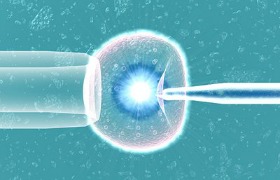Researchers predict IVF failure using gene expression profiling
In Scientific Reports, scientists of the University Medical Centre Utrecht, The Netherlands, and the university hospital of Southampton, United Kingdom, describe a genetic expression profile of the endometrium with which they can predict the success of an IVF (in vitro fertilisation) treatment. Ultimately, this may lead to the development of a clinical test.
Recurrent implantation failure (RIF) or the repeated failing of an IVF treatment is common. Until recently, the causes for failure remained elusive. The team of Dutch and British scientists worked together to demonstrate the predictive value of genetic expression in endometrial cells.
To assess the genetic expression profile in the endometrium, the researchers took 43 biopsies of women that underwent multiple unsuccesful IVF cycles. Also, biopsies were obtained of 72 controls: women who got pregnant from IVF or intracytoplasmatic sperm injection (ICSI). In 80 percent of the cases in which implantation was not successful, cells were found with an abnormal genetic expression profile. This was not found in the control group. The positive predictive value of the RIF gene expression pattern was 100 percent, meaning that RIF occurred in all women bearing the abnormal expression profile.
According to the researchers, the discovered genetic profile could lay the basis for a novel test, with which the chance of a successful IVF treatment can be determined. This test could be the basis of advice in terms of starting another IVF cycle, or abandoning the treatment. Until then, there still are a few hurdles to overcome, according to co-author professor Nick Macklon: “The next step is to develop a clinical study to assess the efficacy on a larger scale.”
Source: UMC Utrecht, Scientific Reports.
MedZine writes about notable science twice a week.







